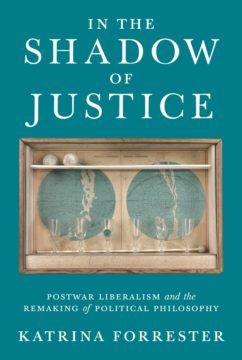 Florence Sutcliffe-Braithwaite interviews Katrina Forrester over at Renewal:
Florence Sutcliffe-Braithwaite interviews Katrina Forrester over at Renewal:
Florence Sutcliffe-Braithwaite (FSB): The first part of your book, In the Shadow of Justice (Princeton 2019), goes back to the 1950s, when the basic parameters of Rawls’s theory of justice were, you argue, set. As a historian of Britain, I was fascinated by how much the British Labour Party’s revisionists shaped Rawls in the 1950s – you suggest, in fact, that his theory brought ‘philosophical order to the ideas of the Labour revisionists’ (p25). But because it was so fundamentally formed in this period, Rawlsianism was premised on continuing high levels of growth and public buy-in for welfare programmes, two things that Labour revisionists took for granted but which would become much less secure in the years after the publication of A Theory of Justice in 1971. In the following decades, as you show, a cohort of Rawlsian political philosophers, defending his work from attacks on left and right, firmed up and elaborated Rawls’s already immensely ambitious theory into a kind of juggernaut: huge, with a vast, rigid structure, very slow to turn around, but immensely powerful. Rawlsianism didn’t just come to dominate liberal political philosophy, it essentially defined liberal egalitarianism. Other philosophers had to work in its shadow. You want, in your book, to ‘denaturalize and defamiliarize’ the canons of liberal egalitarianism (p275). What’s the practical payoff from doing this?
Katrina Forrester (KF): It can be hard to see the assumptions that underpin a particular way of thinking, and to see the different choices that go into making up the conceptual frameworks that we take for granted and that are coded as ‘intuitive’. Among political philosophers, liberal egalitarianism has been a dominant way of thinking about politics, society and ethics, for decades. Though its origins in the political philosophy of John Rawls are constantly revisited, sometimes in a quasi-scriptural way, its political origins are less often interrogated. I wanted to ask what we see if we take liberal egalitarianism as a historical phenomenon to be explained. If it is recast as one of the twentieth century’s languages of liberalism, a framework that is one among many, then we might be better placed to ask if it’s a language and a framework we want to use.
More here.
